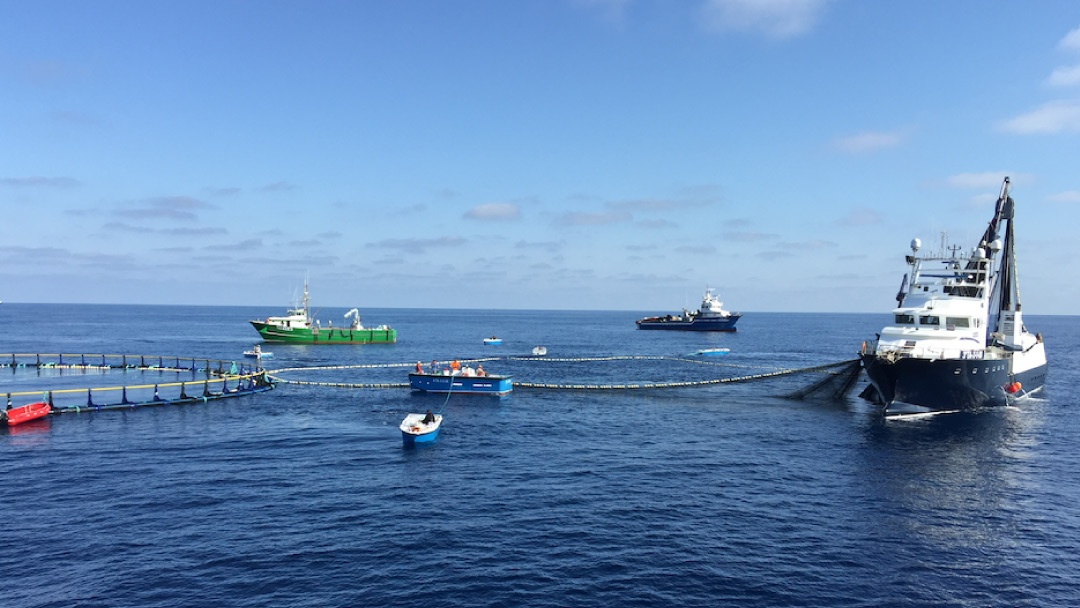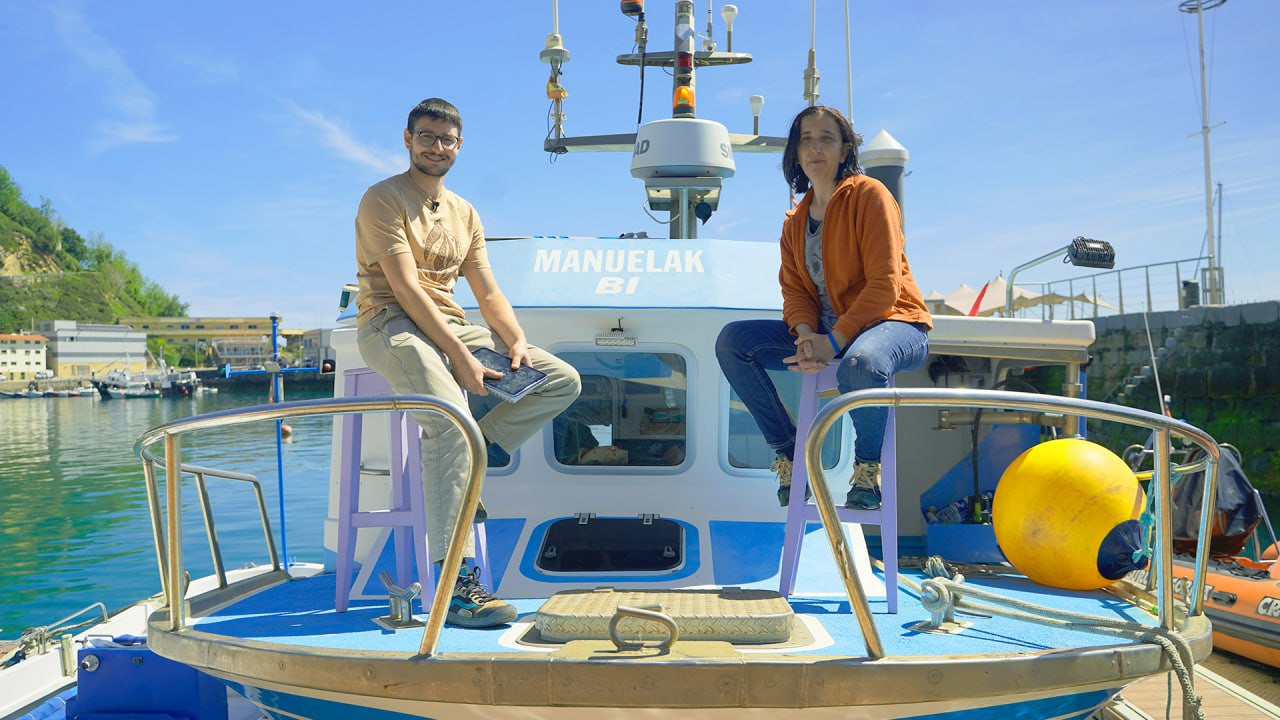"In the face of climate change, we suspect that older varieties of cereals are more resilient"
- Farmers are experiencing climate change from the front line as they are directly affected. What changes have you noticed in the south of Navarre and what dilemmas have you had in recent years when water is scarce? Eli Pagola interviews Hazialde cooperative worker Lorea Lizarreta in the Egonarria program.

"In recent years there have been meterological phenomena that have caused multiple crops. In recent years, this evolution of drought or climate change has made us almost dependent on the existence of irrigation systems, such as legume production. A few years ago these irrigation systems were only used in summer and last year, in winter and spring, they had to be watered, otherwise plants would not grow. The low levels of reservoirs for the month of July are derived from this. Yes, it is generating huge dependence on irrigation systems and questioning whether we should change the model. For example, we have started to think that we will have to go to other varieties or that we will not be able to store 5,000 kilos per hectare. That's a reality." These are words of Leire Lizarreta, a young worker of the Hazialde cooperative, who were broadcast in Egonarria in response to questions from Eli Pagola.
He also explains that the past harvest was "very rare": "In June there were terrible storms that did hail. This strongly influenced, on the one hand, the loss of harvest and, on the other, the abundance of fungi in that harvest, the darkness of the seeds... All of this influences the food chain: the loaves will have to explain to consumers why this year the flour is a little darker... These products are not uniform, they are not included in some standards, why? Because we have all these other reasons."
Are there more resilient cereal varieties in the face of water scarcity?
Eli Pagola asked him a question about the new varieties and Lizarreta found the answer in the old varieties: "We have a suspicion that older varieties may be more profoundly exposed to the soil and can better absorb water." The Hazialde cooperative has explained the project initiated with the Biolur association and the Biharko Land Association (BLE). The objective is to recover the wheat varieties grown in the Basque Country for the bakery: "Being varieties prior to the Green Revolution, gluten is less developed and therefore may be better for health, information we have received from various sources. On the other hand, we believe that they will better adapt to the climatic conditions that come, because they are territorial and have already had a natural selection".
Here you can see the full dialogue:
Growing: an alternative to cereals quoted on the global market
In addition to addressing the issue of the climate emergency, Lizarreta has brought very interesting topics. He explains that cereals are moving in a global market: "Prices are placed on the world markets, listed on the stock market and the possibility of playing in this fair price contest is limited. This allows the farmer very limited freedom and autonomy, and in this global world cereals are one of the most important raw materials that are imported and exported".
It raises this simple question, which highlights the lack of public knowledge of our daily bread: "We all eat bread. But the flour of that bread that we eat is where? ". "No idea," says presenter Pagola. Demolition of Lizarreta: "It may come from Canada, from Egypt or whatever. Hazialde also emerges from this desire, on the one hand, to relocate or to bring consumption and production closer".
Why Grows?
Lizarraga has given more reasons 5 years ago for organic producers of cereals, fodder and legumes in the south of Navarra to create in Crete: to give more autonomy to producers, to be better paid and "that extensive crops be used for human consumption. In fact, between 60% and 75% of these extensive cereals currently produced in Navarra are intended for animal feed: feed, fodder..." Currently the cooperative consists of 15 producers.
He explains that growing cereals and legumes requires large and expensive machines: "You're not going to start hand screening 50 tons of wheat! These are incredible investments, these machines cost money, and everyone can't raise them. It has to go through several stages since the production is collected: first it has to be cleaned, in the case of legumes it has to be frozen so that the stream does not come out, pack it... To do it individually, in those large volumes, is almost impossible. Cooperatives had all these infrastructures and there was no possibility of carrying out the whole process in an ecological way. Growing provides a playing field, a service to select, freeze and package our organic productions. And in a group, pack, wrap... to get that machinery slowly and make it auzolan."
To learn more about semen we recommend the article of Garazi Zabaleta: Merging organic producers of cereals, fodder and legumes in Navarra.














